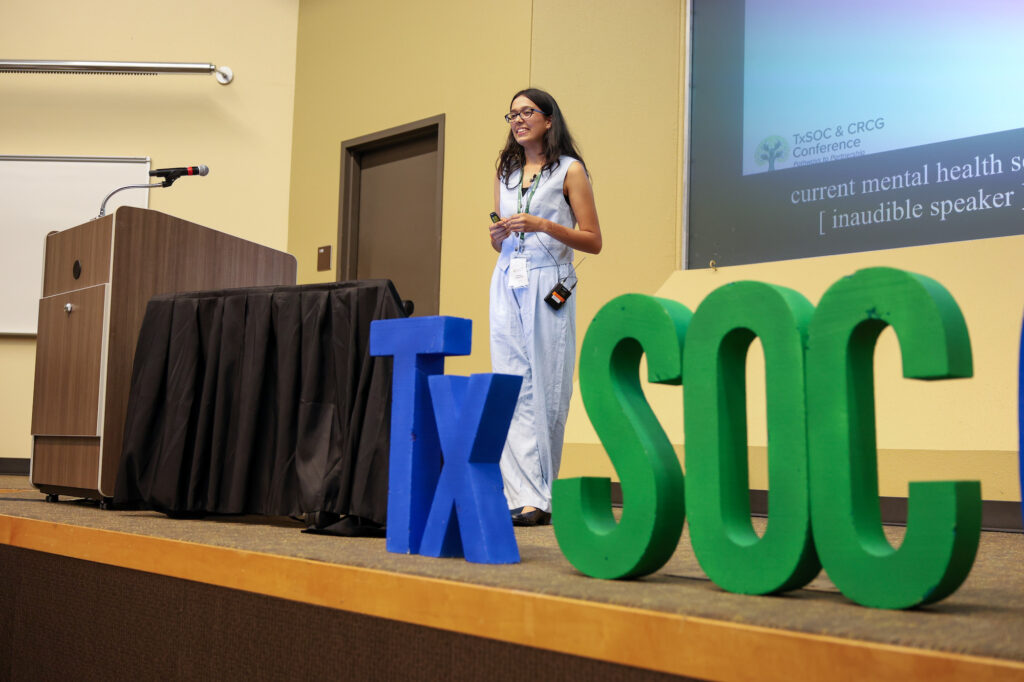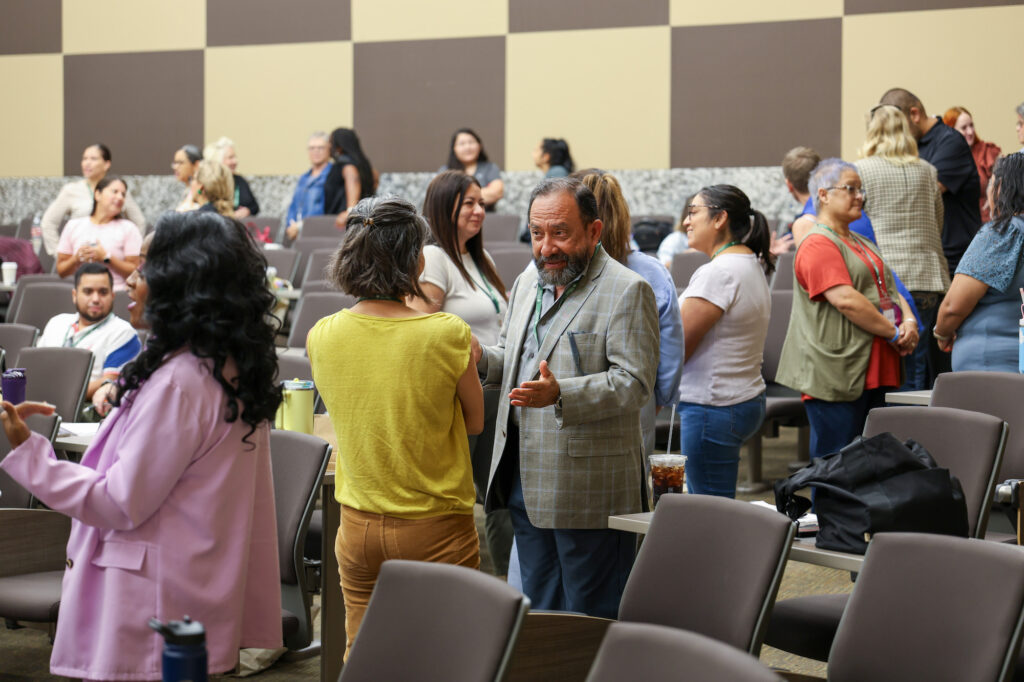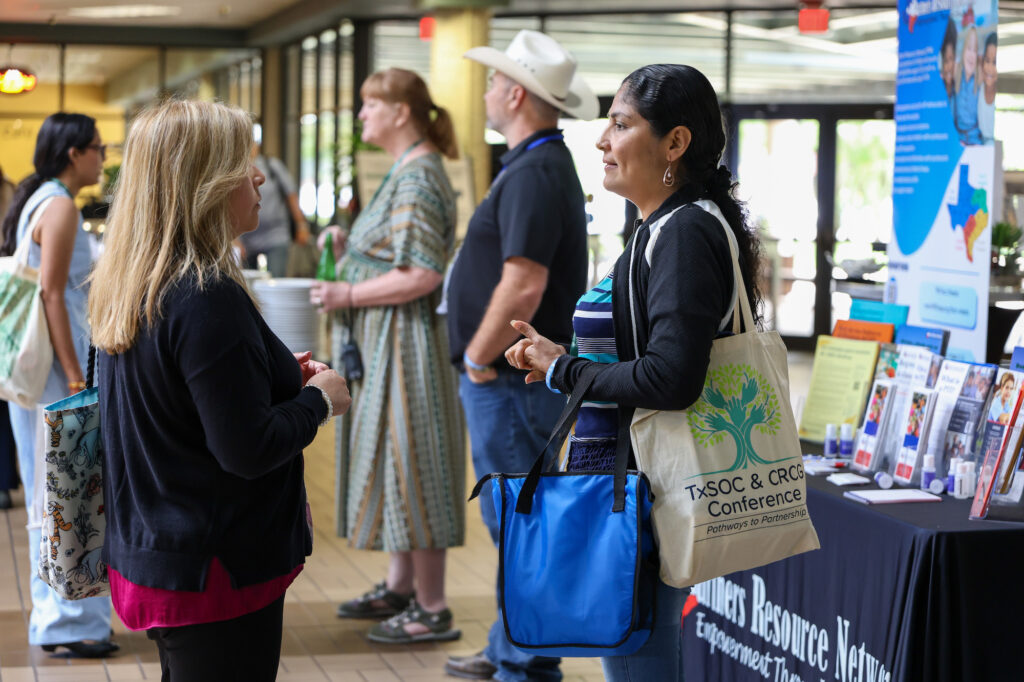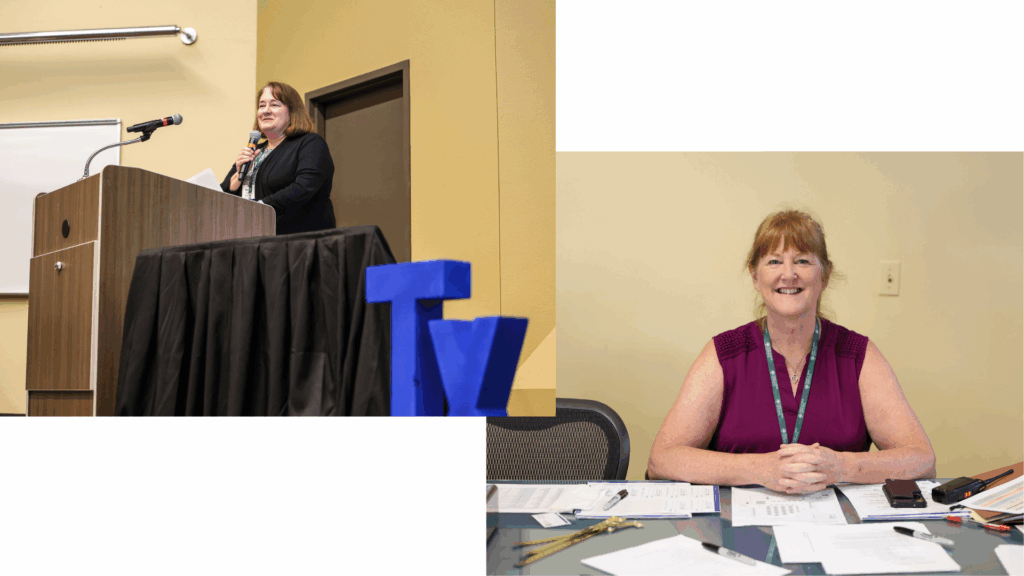Our team was thrilled to welcome over 200 in-person attendees and more than 140 virtual attendees to the Texas System of Care & Community Resource Coordination Groups Conference! It was inspiring to see everyone engaged, sharing resources, and brainstorming solutions.
TxSOC is a partnership between the Texas Institute for Excellence in Mental Health (TIEMH) and the Texas Health and Human Services Commission (HHSC). Thank you to our conference planning partners for their dedication throughout this event, including HHSC, CRCG leaders, and TxSOC communities statewide. The conference went seamlessly thanks to their support, and guests had the chance to make meaningful connections with others in the system of care space.
Let’s reflect on a few takeaways from the conference:

Engage Youth in Conversations Concerning Them
We heard from youth advocates, including Pritika Kharkwal and Andres Valle, who shared their perspectives on gaps in youth mental health services. A key concern is how decisions are often made about young people (and their families) without their input.
In Pritika’s session “Youth Speaking Up! Creative Ways to Encourage Youth Voice,” she offers some ideas on how to bring youth to the table:
- Youth advisory boards
- Youth-centered focus groups
- Integrating conversations about mental health into a school’s core curriculum and through workshops
- Community forums
- Engage youth advocates in the mental health cause
- E.g. Bring young people to Capitol Hill Day or for state testifications on mental health bills
During the workshop “Amplifying Youth and Family Voice in Decision-Making and System Change,” presenters shared specific strategies that work when you engage with youth:
- Ensuring shared power from the start
- Paying youth and families for their time, partnership, and expertise
- Clarifying roles and expectations (clear is kind)
- Using flexible meeting formats (virtual, times outside of normal business hours)
- Offering mentorship and leadership roles
Andres told attendees about his organization Teens Supporting Teens, a youth-led initiative focused on peer support and mental health awareness. Andres serves as a Youth Representative on the Texas Health and Human Services Children and Youth Behavioral Health Subcommittee, helping inform policy and system improvements.
His influence is a great example of what’s possible when you give young people a chance to share their ideas.

Self-Care Looks Like: Connecting with Yourself and Those Around You
In the workshop “Preventative Self-Care through Meditation and Relaxation Practices for Mental Wellbeing,” attendees learned about the 5 C’s (Calm, Courage, Clarity, Compassion, and Contentment) as foundational elements of their mental, emotional, and social intelligence.
The presenters asked attendees to reflect on what makes them stressed, how they feel in those moments, and how they integrate self-care. A few suggestions to help improve your self-care include resting your mind, de-cluttering/decompressing, fostering connections, and establishing a support system.
In the session titled “The Epidemic of Loneliness,” Dr. Janie Stubblefield reminded everyone about how dangerous it is to lack social connections— that goes for themselves and their clients. Building and strengthening your community is one of the best ways to reduce loneliness.
What can help you build community? Try starting by bonding over common interests, scheduling regular activities, inviting others, practicing active listening, and sharing vulnerability.
Dr. Stubblefield recommends asking yourself the Big 3:
- What is the best thing you did for yourself today?
- What is the best thing you did for someone else today?
- What is the best thing you did for your relationships today?

Enhancing Access Includes: Plain Language, Flexible Meeting Options, Community Partnership, & More
The session “Breaking Barriers and Enhancing Access to CRCG Systems of Care for Rural and Underserved Populations” addressed common barriers, explored plain language principles, and discussed effective ways to deliver services.
When presenters Joana Padilla Zapata and Nishona Law-King asked the group to discuss common barriers in their region, some responses we heard were transportation, trust, stigma (fear of being judged because everyone knows everyone in small towns), cultural differences, and a lack of providers who want to serve in those areas.
Joana and Nishona highlighted a few strategies for enhancing access, including:
- Simplifying processes
- Offering flexible meeting options
- Partnering with community groups
- Translating, interpreting
- Trauma-informed care- TEA Texas Project Restore
You can learn more about suggested plain language terms and phrases here. Joana and Nishona also recommend reaching out to CRCG Regional Coordinators for more guidance and resources.

We Appreciate Your Support
Huge thanks again to everyone who helped make this event a success. Our team at TxSOC is excited to continue working with our partners and community members to enhance system integration for children, youth, and families.
Leave a Reply